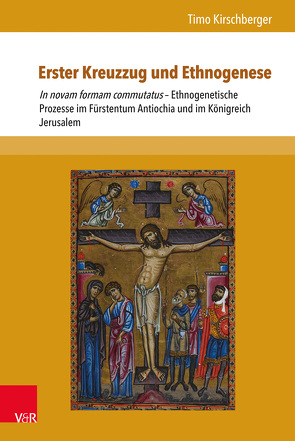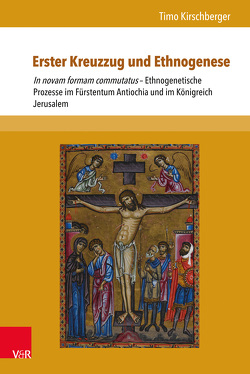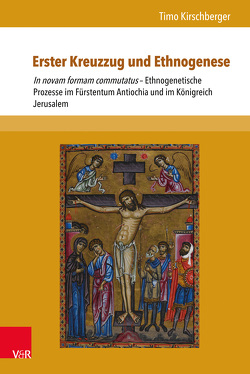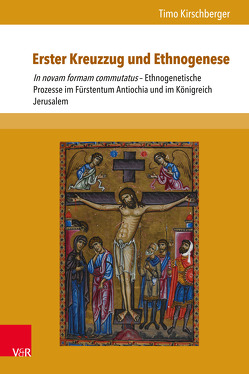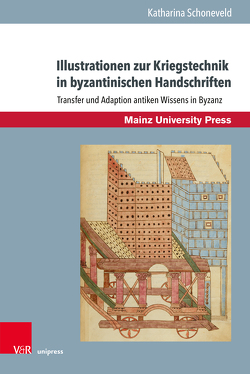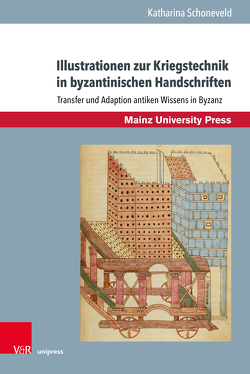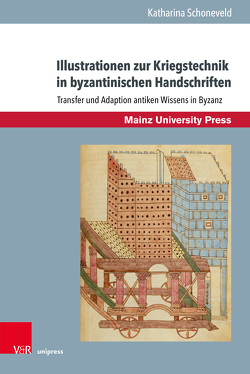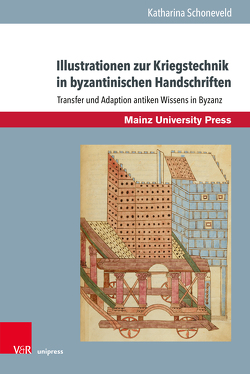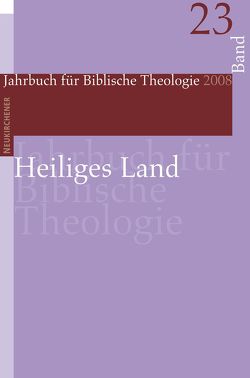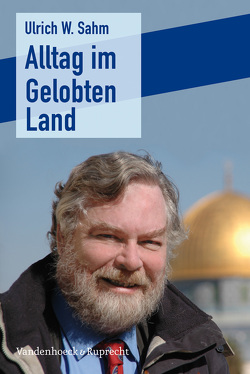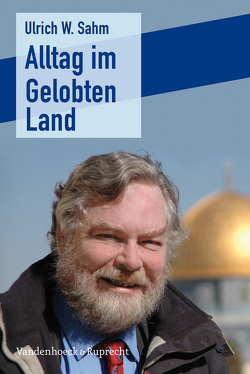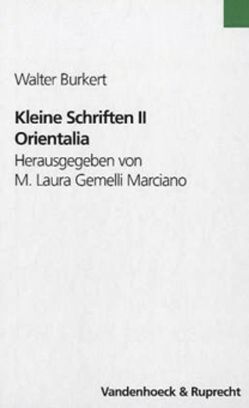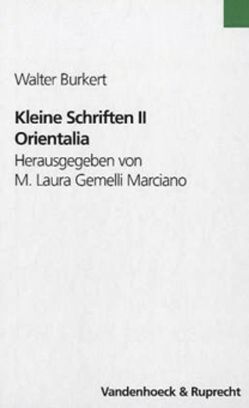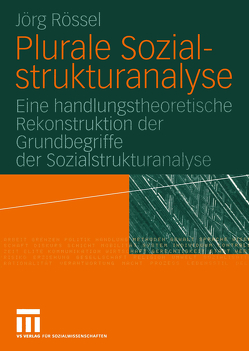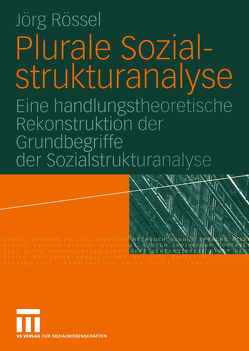Erster Kreuzzug und Ethnogenese
In novam formam commutatus – Ethnogenetische Prozesse im Fürstentum Antiochia und im Königreich Jerusalem
Timo Kirschberger
As a result of the First Crusade, four so-called crusader states were established in the Levant, chief among them the Kingdom of Jerusalem and the Principality of Antioch. Participants of the First Crusade and later arrivals from the West settled in these territories and developed into new groups with distinct identities based on the shared experience of the crusade and the foundation period, on their confrontation with Muslims, Jews and Oriental Christians and on a growing attachment to their new homes in the East.This book is dedicated to analysing this process of the formation of new ethnic identities in the Principality of Antioch and in the Latin Kingdom of Jerusalem. The study employs the methods of ethnogenesis studies and ethnosymbolism, thus combining approaches of historians and sociologists. After an overview of previous research and an introduction to the sources, the author analyses ethnic group terminology, the distinction from other groups, the role played by prologues in crusading chronicles and interprets the Frist Crusade as the origin story of the new groups. A final chapter presents a detailed analysis of the function as ethnic symbols of Saint Peter for Antioch and the relic of the True Cross for Jerusalem.
